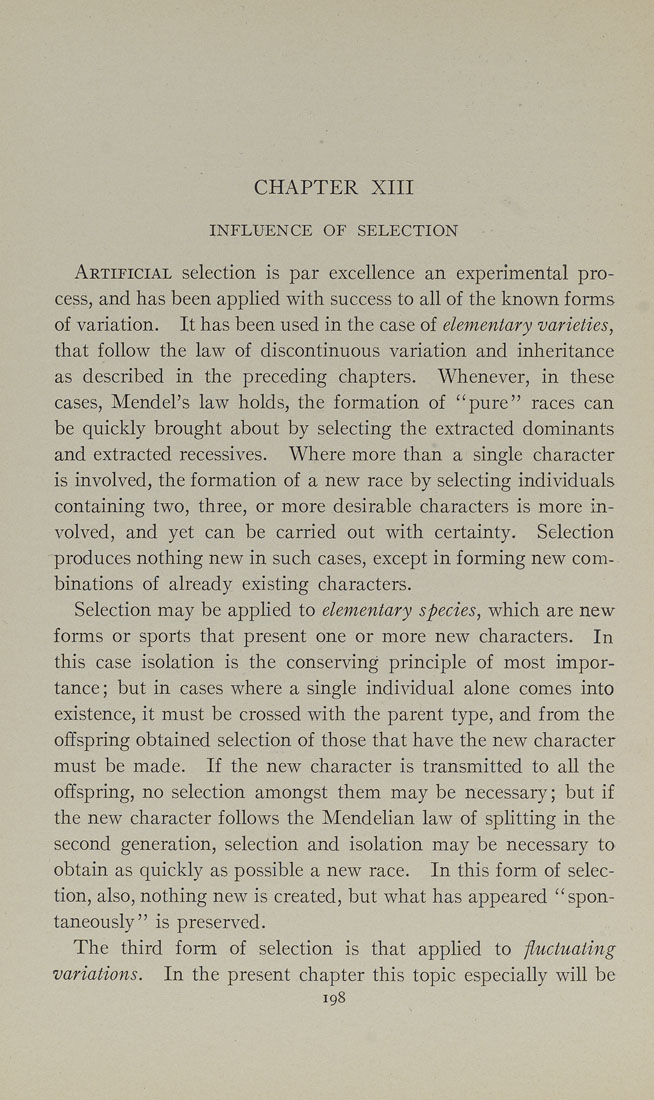CHAPTER XIII
INFLUENCE OF SELECTION
Artificial selection is par excellence an experimental pro¬
cess, and has been applied with success to all of the known forms
of variation. It has been used in the case of elementary varieties,
that follow the law of discontinuous variation and inheritance
as described in the preceding chapters. Whenever, in these
cases, Mendel's law holds, the formation of "pure" races can
be quickly brought about by selecting the extracted dominants
and extracted recessives. Where more than a single character
is involved, the formation of a new race by selecting individuals
containing two, three, or more desirable characters is more in¬
volved, and yet can be carried out with certainty. Selection
produces nothing new in such cases, except in forming new com¬
binations of already existing characters.
Selection may be applied to elementary species, which are new
forms or sports that present one or more new characters. In
this case isolation is the conserving principle of most impor¬
tance; but in cases where a single individual alone comes into
existence, it must be crossed with the parent type, and from the
offspring obtained selection of those that have the new character
must be made. If the new character is transmitted to all the
offspring, no selection amongst them may be necessary; but if
the new character follows the Mendelian law of splitting in the
second generation, selection and isolation may be necessary to
obtain as quickly as possible a new race. In this form of selec¬
tion, also, nothing new is created, but what has appeared "spon¬
taneously" is preserved.
The third form of selection is that applied to fluctuating
variations. In the present chapter this topic especially will be
|








